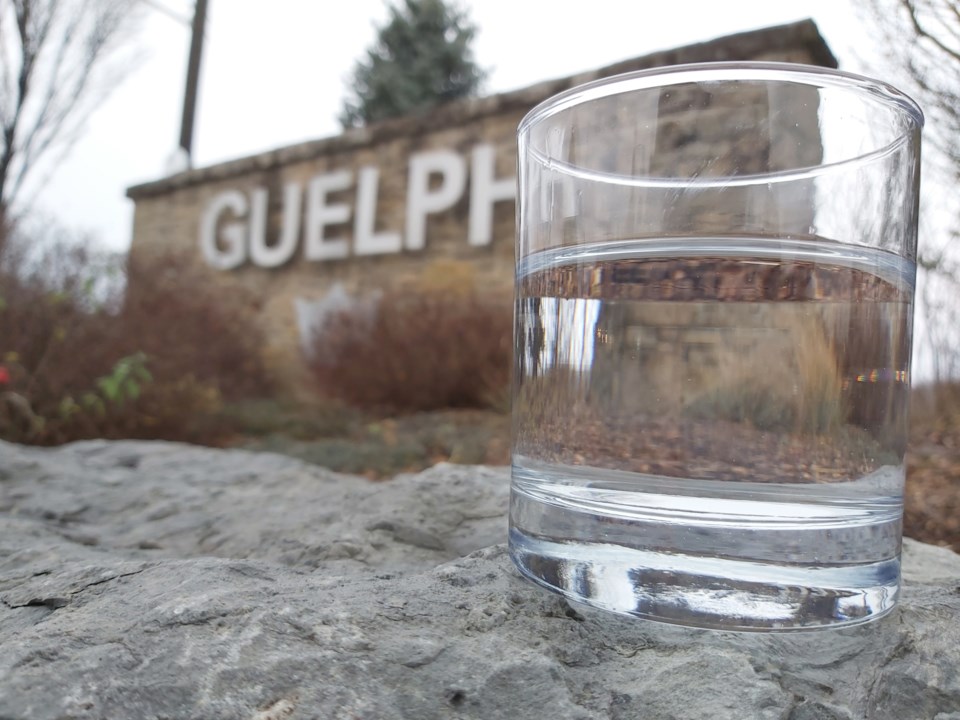There’s not enough water supply within the city to meet Guelph’s growth to 2051, a staff report has found.
As such, council is being encouraged to look to well sites in Puslinch and Guelph-Eramosa townships, as well as several other measures, in order to meet demand while still meeting provincially mandated growth targets.
“Groundwater is a finite resource and there will be a future limit which will need to be considered by future councils on water supply and growth in Guelph,” states the report, which heads to council’s committee of the whole for consideration on Tuesday afternoon.
“Protection of our drinking water sources, within and outside of the municipal boundaries of Guelph is a priority due to our groundwater-based system.”
As noted in the 2021 Water Supply Master Plan (WSMP) update, the city has a “firm water supply” capacity of approximately 65,447 m3 to 79,422 m3 per day through the existing water-taking system. That system includes 25 drilled groundwater wells – including Arkell Spring Grounds on city-owned lands in Puslinch – shallow and deep bedrock aquifers, one groundwater collection system, the Eramosa River intake and a groundwater recharge system.
The city currently has nearly 145,000 residents and is mandated to grow to 203,000 by 2051, though council recently approved a motion seeking to increase that number to 208,000 in light of the annexation of the Dolime Quarry lands and planned development there.
Once the city reaches that point, demand is expected to be between 68,306 m3 /day and 91,530 m3 /day, which could reach beyond what the current system can provide.
In order to overcome that deficit, city staff took a look at water conservation, efficiency and demand management; groundwater sources both inside and outside city limits, creation of an aquifer storage and recovery system; and local surface water systems.
“A limit growth alternative and a do nothing alternative were also assessed as part of the … process but were ultimately eliminated as these alternatives do not meet the goals of the WSMP update,” the staff report notes.
In the end, a series of short, medium and long-term recommendations will be put to council for consideration. With a total estimated cost of $222 million, they include:
Short-term (up to 10 years)
- Conservation, efficiency and demand management efforts ($11.4 million)
- Test wells inside the city ($22.9 million)
- Test wells on city-owned land in Guelph-Eramosa ($10.1 million)
- Existing well upgrades ($6.8 million)
- Dolime water pumping station ($3.9 million)
Medium-term (11 to 20 years)
- Continued conservation, efficiency and demand management efforts ($4.7 million)
- A “lower road collector” at the Arkell Spring Grounds in Puslinch ($13.9 million)
- Storage recovery wells at Arkell Spring Grounds ($25.3 million)
Long-term (21 years to 2051)
- Continued conservation, efficiency and demand management efforts ($15 million)
- New test wells within the city ($5.8 million)
- Dolime water treatment plant ($18.9 million)
- Well improvements within the city ($13.1 million)
- Pushlinch well ($6.9 million)
- Guelph-Eramosa well ($12.8 million)
If approved by the committee of the whole, the report and recommendations will go to council on June 27 for potential ratification.
